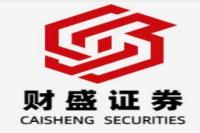复星旅游文化私有化:港股市场大涨背后的隐秘力量?
元描述: 复星旅游文化私有化、港股大涨、房地产板块强势反弹、上海国企改革、A股热门股,解读12月11日股市波动背后的原因及未来走势,深入分析投资机会与风险。
Hold onto your hats, folks! The stock market took a wild ride on December 11th, with a rollercoaster of ups and downs that left investors buzzing. A stunning surge in Hong Kong's Hang Seng Tech Index (up over 1% at one point!), coupled with a solid gain in the Hang Seng Index (0.68%), signaled a day of significant market movement. This wasn't just a random blip; beneath the surface lurked a complex interplay of factors, from the surprising privatization of a major player to a renewed focus on a key economic sector. This detailed analysis delves into the heart of the matter, examining the key drivers behind this market activity and exploring the potential implications for investors. Forget the superficial headlines; we're going deep, offering insights gleaned from years of experience in the financial markets. Get ready to unravel the mystery behind this exciting day in the world of finance! We'll explore the key players, dissect the news driving the markets, and provide you with a comprehensive understanding of the forces shaping the investment landscape. This isn't just a recap; it's a strategic roadmap for navigating the complexities of the current market environment. So, buckle up and let's dive in!
复星旅游文化私有化:股价飙升背后的策略
The day's most dramatic event was undoubtedly the announcement of 复星旅游文化 (Fosun Tourism Culture)'s proposed privatization via a scheme of arrangement. Whoa! This wasn't just any news; it sent shockwaves through the market. The board's offer to buy back shares at HK$7.80 per share – a hefty 95% premium over the last closing price – ignited a frenzy of trading. The stock skyrocketed, opening 83.25% higher before settling at a still-impressive gain of 78%.
But what does this all mean? The official narrative focuses on unlocking shareholder value and gaining flexibility for long-term strategic decision-making. However, a deeper dive suggests more nuanced factors at play. Was this a strategic move to streamline operations, to facilitate future acquisitions, or perhaps a response to specific market pressures? Only time will tell the full story, but the sheer magnitude of the price jump speaks volumes about investor confidence (or perhaps, relief) in the company's future prospects. It's a prime example of how market sentiment can impact even well-established companies. This event serves as a stark reminder of the unpredictable nature of the market and the importance of understanding the implications of major corporate actions.
房地产板块强势反弹:黎明前的曙光?
The real estate sector, often a barometer of broader economic health, staged a significant rebound. Several major players like 栖霞建设 (Qixia Construction), 中华企业 (China Enterprise), and 津投城开 (Tianjin Investment City Development) hit the daily limit, while others like 绿地控股 (Greenland Holdings), 荣盛发展 (Rongsheng Development), and 大悦城 (Deyuan City) saw substantial gains. This surge wasn't entirely unexpected. Recent policy adjustments aimed at supporting the sector have injected a dose of optimism into the market. However, investors should approach this recovery with caution. The sector still faces significant headwinds, and while the immediate outlook appears brighter, long-term sustainability remains a key concern. It’s a classic case of “wait and see,” demanding a nuanced understanding of the sector's challenges and the government's ongoing support measures.
上海国企改革概念股:持续关注的投资热点
The Shanghai state-owned enterprise (SOE) reform initiative continued to generate significant buzz. The release of the "Shanghai Action Plan for Supporting the Mergers and Acquisitions of Listed Companies (2025-2027)" fueled considerable excitement. This plan aims to cultivate approximately 10 internationally competitive listed companies in key industries – including integrated circuits, biomedicine, and new materials – by 2027. The ambitious target of 3000 billion yuan in M&A transactions and the mobilization of over 20,000 billion yuan in total assets underscores the government's commitment to restructuring and revitalizing these enterprises. Companies like 上海物贸 (Shanghai Materials), 第一医药 (First Pharmaceutical), and 市北高新 (Shibei High-tech) surged, highlighting the market's strong interest in the potential benefits of this reform. This initiative represents a long-term strategic play, and while the short-term gains are enticing, investors should adopt a long-term perspective when considering investments in this sector.
A股热门股:一鸣食品的十二连板及后续走势
A-shares also witnessed some significant action. 一鸣食品 (Yiming Food), a dairy product company, was the talk of the town, achieving a remarkable 12-day winning streak (though the daily limit was ultimately breached). This kind of performance often indicates strong market enthusiasm and the potential for further growth. However, such rapid increases often come with substantial risk. The market’s behavior indicates potential overvaluation, and investors should be wary of potential corrections. This is a textbook example of a high-risk, high-reward situation. It's crucial to remember that even the hottest stocks can cool down quickly.
市场波动背后的深层原因
The market's performance on December 11th wasn't driven by a single factor. Instead, it reflected a confluence of influences: the surprising privatization of Fosun Tourism Culture, the ongoing recovery in the real estate sector, the government's commitment to SOE reform, and the speculative fervor surrounding hot stocks like Yiming Food. Understanding these interacting forces is paramount for navigating the complexities of the market. This isn't simply about reacting to headlines; it's about developing a comprehensive understanding of the underlying economic and political drivers.
投资建议与风险提示
While the market's recent performance is encouraging, investors should remain cautious. Market volatility remains a significant risk, and sudden shifts in sentiment can lead to substantial losses. It’s crucial to diversify your portfolio and conduct thorough due diligence before making any investment decisions. Remember, past performance is not necessarily indicative of future results. Investing in the stock market carries inherent risks, and only invest what you can afford to lose.
常见问题解答 (FAQs)
-
Q: What caused the surge in Hong Kong stocks?
A: The privatization of Fosun Tourism Culture was the primary catalyst, but the overall positive sentiment surrounding the real estate sector and SOE reforms also contributed.
-
Q: Is the real estate sector recovery sustainable?
A: While recent policy changes are supportive, the sector still faces significant challenges. The recovery's sustainability remains uncertain.
-
Q: How risky is investing in A-share hot stocks like Yiming Food?
A: High-growth stocks often experience rapid price increases, followed by equally rapid corrections. Investing in them involves significant risk.
-
Q: What is the significance of the Shanghai SOE reform plan?
A: This plan signals a long-term government commitment to restructuring and revitalizing state-owned enterprises in key strategic sectors.
-
Q: Should I invest in the Shanghai SOE reform-related stocks?
A: This is a long-term investment opportunity. Conduct thorough research and consider your risk tolerance before investing.
-
Q: What should investors do in this volatile market environment?
A: Diversify your investments, conduct due diligence, and only invest what you can afford to lose. Stay informed about market developments and adjust your strategy accordingly.
结论
December 11th's market activity showcased the intricate interplay of various economic and political factors. While the positive performance is encouraging, investors should exercise caution and develop a nuanced understanding of the underlying drivers behind market movements. Remember, the stock market is inherently volatile, and successful investing requires a long-term perspective, careful risk management, and a continuous process of learning and adaptation. Stay informed, stay alert, and stay invested wisely!



